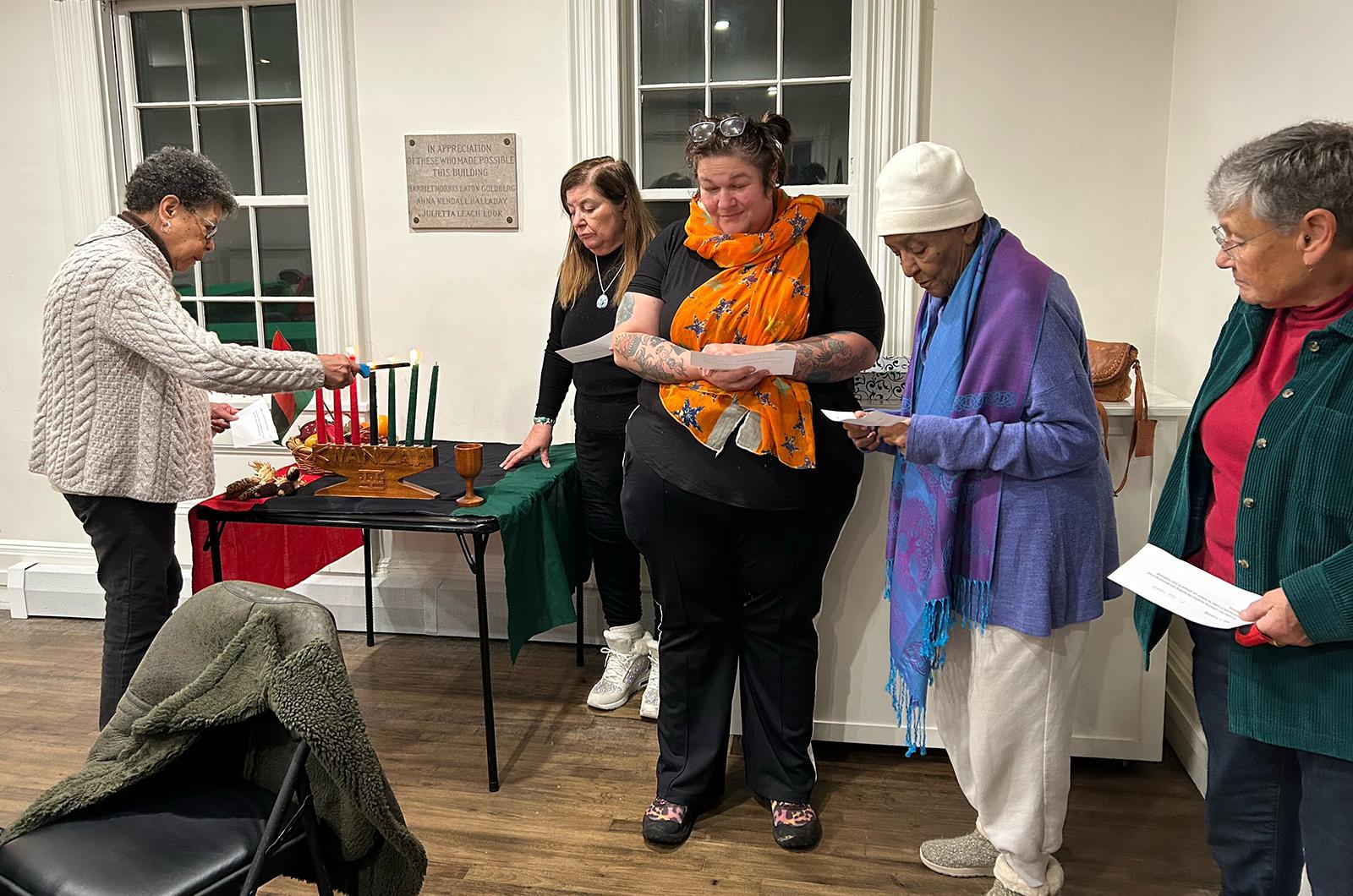The Martha’s Vineyard branch of the NAACP held a Kwanzaa dinner for the first time since the start of the Covid-19 pandemic. A group of 10 people gathered at the First Baptist Church of Vineyard Haven’s parish house on Saturday to mark the holiday which runs from Dec. 26 to the first day of the new year.
Kwanzaa is a celebration of African and African-American culture. The holiday was created by Mulana Karenga in 1966, and modeled after the first fruit festivals, which coincide with the first harvest.
“It’s feast time. You make a feast and invite people together,” said Carrie Tankard, one of the event organizers.
Lorna Andrade, former vice president of MVNAACP, said that she was glad children were in attendance to learn about the holiday.
“You have to know where you come from in order to know where you’re going,” she said. “We have to educate our youth.”
Symbols of the holiday were presented on a small table near the door. The kinara, a candleholder, stood beside the unity cup, which contained a basket of fruits and vegetables and the Pan-African flag.
“The fruits and vegetables represent the first harvest. There are ears of corn. I have six children, so there are six ears,” explained Ms. Tankard.
Each of the seven nights represents a different principle. The first two nights are for umoja (unity) and kujichagulia (self-determination). The third night, which was when the potluck was held, represents ujima, collective work and responsibility. The last four principles are ujamaa (cooperative economics), nia (purpose), kuumba (creativity) and Imani (faith).
“This is a way of bringing people together who believe in these principles,” Ms. Tankard said.
Guests brought dishes to share. After eating at tables draped in red, black and green, the group gathered to light the kinara, which is lit every night of Kwanzaa. There are seven candles — three red candles, which symbolize struggle and bloodshed, a central black candle which symbolizes the African people and three green candles which represent hope.
Carmen Tankard-Amadeo lit the candles as participants read out the seven principles of the holiday.
“It’s always nice to support our heritage,” Ms. Tankard-Amadeo said. “So much of it has been lost and suppressed, so any chance we get to celebrate that is a good thing.”




Comments
Comment policy »